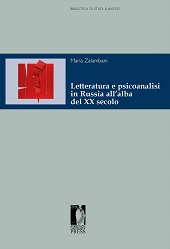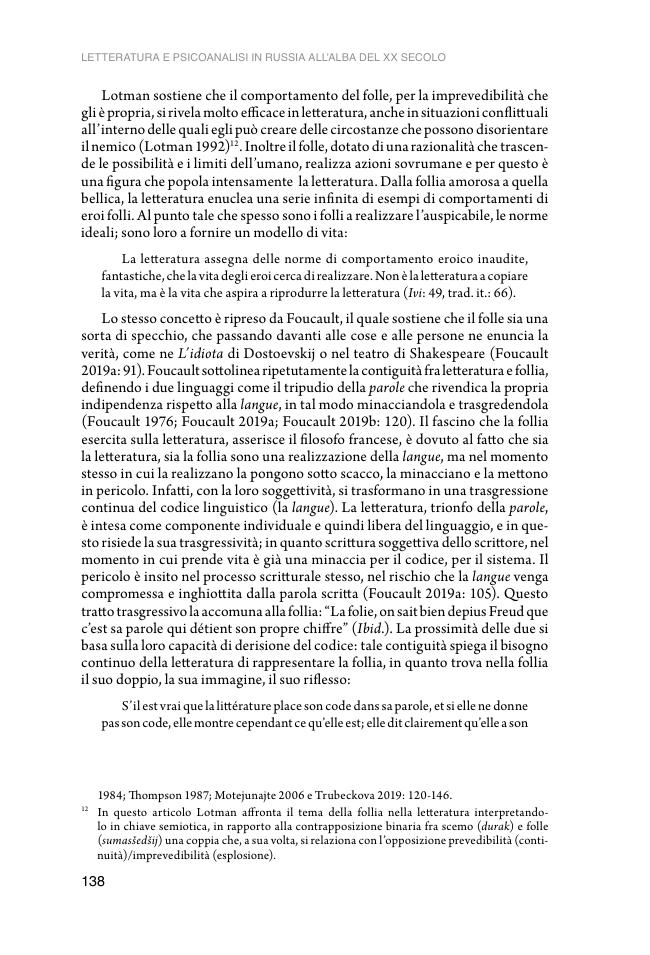Letteratura e psicoanalisi in Russia all'alba del XX secolo
269 p.
Includes bibliographical references (p.217-260) and index.
Psychoanalysis spread earlier and faster in Russia than in Western Europe. According to the author, there are three main reasons for this. First, psychoanalysis is based on the fictional structure of patients's narratives. In a literary-centric country such as Russia, the ‘literary character' of psychoanalysis quickly attracts the Russian intelligentsia. Secondly, the formal similarities between literary and psychoanalytic language, and the close connection between the poetic word and the rhetoric of the unconscious, contribute to rendering Freudian language particularly familiar in Russia.
Thirdly, the Silver Age, with its attention to the symbol, the ‘other', and the double, contributes to increasing interest in the theory of the unconscious. This will continue until after the October Revolution as the state relies on psychoanalysis to help forge the new Soviet citizen. This ‘alliance', however, is short-lived, and Freudian psychoanalytic theory will be ostracized from the 1930s up to the end of the Soviet regime. [Publisher's text]
La psicoanalisi si diffonde più rapidamente e precocemente in Russia rispetto ai paesi dell'Europa occidentale. Secondo l'autrice le ragioni di questo fenomeno risiedono in primis nella struttura ‘romanzesca' della psicoanalisi, basata sulle narrazioni dei pazienti. In un paese letteraturocentrico come la Russia, il suo ‘carattere letterario' attrae immediatamente l'intelligencija. Anche le affinità formali che accomunano la lingua della psicoanalisi a quella della letteratura e la stretta connessione esistente tra retorica dell'inconscio e parola poetica contribuiscono a rendere il linguaggio freudiano particolarmente familiare in Russia.
Infine, il Secolo d'argento, con la sua attenzione al simbolo, all'‘altro', al doppio, acuisce l'interesse per la teoria freudiana. Questo permane anche dopo la rivoluzione d'ottobre, quando lo stato si affida alla psicoanalisi per forgiare la mente del nuovo cittadino sovietico. Questa ‘alleanza' tuttavia avrà breve vita e la psicoanalisi sarà ostracizzata a partire dagli anni '30 fino alla fine del regime sovietico. [Testo dell'editore]
-
Informationen
ISBN: 9788855185479
THEMENBEREICHE



